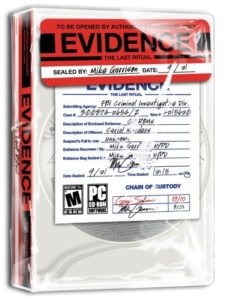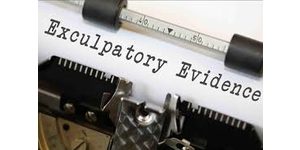Warning: Trying to access array offset on value of type bool in /home/daneciolino/public_html/lalegalethics/wp-content/plugins/footnotation/footnotation.php on line 193
Warning: Trying to access array offset on value of type bool in /home/daneciolino/public_html/lalegalethics/wp-content/plugins/footnotation/footnotation.php on line 193
Warning: Trying to access array offset on value of type bool in /home/daneciolino/public_html/lalegalethics/wp-content/plugins/footnotation/footnotation.php on line 193
Warning: Trying to access array offset on value of type bool in /home/daneciolino/public_html/lalegalethics/wp-content/plugins/footnotation/footnotation.php on line 193
 Nearly two years ago, the Louisiana Supreme Court resolved an unsettled question as to whether a prosecutor’s “ethical” duty to disclose exculpatory evidence under Louisiana Rule of Professional Conduct 3.8(d) is broader than the similar constitutional duty under Brady v. Maryland (U.S. 1963). In an opinion written by Justice Crichton, the court determined that the duties “are coextensive.” See In re Ronald Seastrunk, No. 2017-B-0178 (La. Oct. 18, 2017).1
Nearly two years ago, the Louisiana Supreme Court resolved an unsettled question as to whether a prosecutor’s “ethical” duty to disclose exculpatory evidence under Louisiana Rule of Professional Conduct 3.8(d) is broader than the similar constitutional duty under Brady v. Maryland (U.S. 1963). In an opinion written by Justice Crichton, the court determined that the duties “are coextensive.” See In re Ronald Seastrunk, No. 2017-B-0178 (La. Oct. 18, 2017).1
In late May 2019, the Louisiana State Bar Association’s Rules of Professional Conduct Committee—at the urging of the Office of Disciplinary Counsel—rejected a proposed amendment to Rule 3.8(d) that would have brought the black-letter text of the rule into line with the court’s ruling in Seastrunk. Instead, the committee voted to retain language that is simply no longer the law in Louisiana. A baffling and bizarre vote indeed.
Background: The 1997 Seastrunk Opinion
Ronald Seastrunk was a prosecutor employed by the office of the Vernon Parish District Attorney. From 2010 through 2012, he and former assistant district attorney (and current district judge) Scott Westerchil prosecuted Justin Sizemore for murdering Christopher Hoffpauir. After two mistrials, Mr. Sizemore was convicted of second degree murder in May 2012. The principal state witness at all three Sizemore trials was the victim’s estranged wife, Kristyn Hoffpauir. After pleading guilty and “turning state’s evidence,” Kristyn testified that she was dating the defendant, Mr. Sizemore, and that he shot and killed her husband. The defense contended, however, that she was the perpetrator and lied about Sizemore’s role. The jury rejected Kristyn’s testimony, and unanimously convicted Mr. Sizemore of murder.
ODC contended that the prosecutors failed to turn over impeachment evidence obtained from Jody Thibeaux, a witness who testified for the defense. More particularly, ODC contended that during the first trial prosecutors suggested that Kristyn could not have been “the shooter” because she was not familiar with firearms; that a Vernon Parish Sheriff’s Office detective, Ray Ortiz, interviewed Thibeaux after the first trial and learned that Kristyn had previously possessed a stolen .22-caliber revolver; and, that the state “failed to disclose” Kristyn’s prior gun possession in violation of Brady. ODC alleged that Seastrunk and Westerchil violated Rule 3.8(d) by ‘failing to make timely disclosure to the defense of all evidence or information known to the prosecutor that the prosecutor knows, or reasonably should know, either tends to negate the guilt of the accused or mitigates the offense . . . .’”
Rule 3.8(d) provides as follows:
The prosecutor in a criminal case shall: . . . . (d) make timely disclosure to the defense of all evidence or information known to the prosecutor that the prosecutor knows, or reasonably should know, either tends to negate the guilt of the accused or mitigates the offense, and, in connection with sentencing, disclose to the defense and to the tribunal all unprivileged mitigating information known to the prosecutor, except when the prosecutor is relieved of this responsibility by a protective order of the tribunal . . . .
La. Rules of Prof’l Conduct r. 3.8(d). On its face, this ethical rule is not limited to “material” exculpatory evidence, namely, evidence important enough to affect the outcome of a case. Under the constitutional standard of Brady, however, “a constitutional error occurs, and the conviction must be reversed, only if the evidence is material in the sense that its suppression undermines confidence in the outcome of the trial.” United States v. Bagley, 473 U.S. 667, 678 (1985); Cone v. Bell, 556 U.S. 449, 470 (2009) (due process “as interpreted by Brady, only mandates the disclosure of material evidence . . . .”); see also State v. LaCaze, 2016 WL 7335789 at *6 n.5 (La. Dec. 16, 2016) (noting that under “the Brady materiality standard” the defendant must demonstrate that the undisclosed evidence caused him to receive “an unfair trial resulting in a verdict not worthy of confidence”); State v. Blank, 192 So. 3d 93, 102 (La. 2016) (“a prosecutor does not breach his duty to disclose favorable evidence ‘unless the omission is of sufficient significance to result in the denial of the defendant’s right to a fair trial””). A prosecutor has no constitutional duty to disclose impeachment evidence unless failing to produce it would be “of sufficient significance to result in the denial of the defendant’s right to a fair trial.” United States v. Agurs, 427 U.S. 97, 108 (1976).
The information about the .22-caliber revolver–namely, that Kristyn once possessed such a weapon–was not “material” because it would have had no effect whatsoever on the Sizemore trial. Indeed, ODC conceded that the evidence withheld in the Sizemore trial was not material and exculpatory under Brady. Nevertheless, ODC argued that disclosure was “ethically required by Rule 3.8(d).”
In rejecting ODC’s argument, the court held that the ethical and constitutional disclosure obligations are co-extensive. In so doing, the court reasoned that “under conflicting standards, prosecutors would face uncertainty as to how to proceed, as they could find themsleves in compliance with the standard enumerated in Brady, but in potential violation of the obligation set forth in Rule 3.8(d).” Id. at 18. Furthermore, a broader obligation under Rule 3.8(d) would invite “the use of an ethical rule as a tactical weapon in criminal litigation.” Id. As a result, the court dismissed the formal charges against Mr. Seastrunk.
 The court’s decision in Seastrunk was correct. Expanding Louisiana Rule 3.8(d) beyond the limits of Brady would have been bad policy. Although a minority of states2 impose a broader “ethical” obligation to disclose exculpatory information, doing so in Louisiana would have subjected prosecutors to unwarranted discipline. Among other problems, untethering Rule 3.8(d) from Brady and the Louisiana Rules of Criminal Procedure 3 would have exposed prosecutors to discipline for simply complying with federal constitutional law and state statutory law. Disconnecting Rule 3.8(d) and Brady would have transformed routine discovery disputes into disciplinary actions. Imposing discipline on a prosecutor for failing to turn over information that is absolutely inconsequential would have been pointless and unfair. For that reason, the Seastrunk opinon correctly brings Louisiana into line with a majority of states. See State ex rel. Okla. Bar Ass’n v. Ward, 353 P.3d 509 (Okla. 2015); Disciplinary Counsel v. Kellogg-Martin, 923 N.E.2d 125 (Ohio 2010); United States v. Weiss, No. 05-CR-179-B, 2006 WL 1752373 (D. Colo. June 21, 2006); In re Attorney C, 47 P.3d 1167 (Colo. 2002).
The court’s decision in Seastrunk was correct. Expanding Louisiana Rule 3.8(d) beyond the limits of Brady would have been bad policy. Although a minority of states2 impose a broader “ethical” obligation to disclose exculpatory information, doing so in Louisiana would have subjected prosecutors to unwarranted discipline. Among other problems, untethering Rule 3.8(d) from Brady and the Louisiana Rules of Criminal Procedure 3 would have exposed prosecutors to discipline for simply complying with federal constitutional law and state statutory law. Disconnecting Rule 3.8(d) and Brady would have transformed routine discovery disputes into disciplinary actions. Imposing discipline on a prosecutor for failing to turn over information that is absolutely inconsequential would have been pointless and unfair. For that reason, the Seastrunk opinon correctly brings Louisiana into line with a majority of states. See State ex rel. Okla. Bar Ass’n v. Ward, 353 P.3d 509 (Okla. 2015); Disciplinary Counsel v. Kellogg-Martin, 923 N.E.2d 125 (Ohio 2010); United States v. Weiss, No. 05-CR-179-B, 2006 WL 1752373 (D. Colo. June 21, 2006); In re Attorney C, 47 P.3d 1167 (Colo. 2002).
LSBA Inexplicably Rejects Amendment to Louisiana Rule 3.8(d)
Given the court’s decision in Seastrunk, Rule 3.8(d) clearly should be amended to expressly include the Brady “materiality” standard in the black-letter text of the rule. On May 29, 2019, the LSBA Rules of Professional Conduct Committee considered an amendment to Rule 3.8(d) that would simply have inserted the word “material” into the rule to make the rule consistent with Seastrunk:
The prosecutor in a criminal case shall: . . . (d) make timely disclosure to the defense of all material evidence or information known to the prosecutor that the prosecutor knows, or reasonably should know, either tends to negate the guilt of the accused or mitigates the offense, and, in connection with sentencing, disclose to the defense and to the tribunal all material unprivileged mitigating information known to the prosecutor, except when the prosecutor is relieved of this responsibility by a protective order of the tribunal . . . .
ODC opposed the proposal, arguing that the rule as currently written—although inconsistent with Seastrunk—was consistent with ABA Model Rule 3.8(d). Consistency with the ABA, said ODC, is good.4 ODC further argued that no change was necessary because lawyers can simply read Seastrunk to learn that the actually applicable law is different from what the rule says.
ODC’s arguments carried the day with a majority of the committee. In so doing, the LSBA deliberately chose to retain an inaccurate rule that promotes misunderstanding and fails to respect the law as articulated by the Louisiana Supreme Court. A bizzare and baffling choice for an association whose mission is to “increase public understanding of and respect for the law.”
- Dane S. Ciolino represented Mr. Seastrunk in the disciplinary proceedings before the Louisiana Attorney Disciplinary Board and the Louisiana Supreme Court. ↵
- In re Larsen, No. 20140535, 2016 WL 3369545 (Utah 2016); In re Disciplinary Action Against Feland, 820 N.W.2d 672 (N.D. 2012); ABA Formal Op. 09-454 (2009). ↵
- La. Code Crim. P. art. 723(B) (requiring disclosure of “any evidence constitutionally required to be disclosed pursuant to Brady v. Maryland, 373 U.S. 83 (1963) and its progeny.”). ↵
- Interestingly, ODC has opposed amending Louisiana Rule 1.8 to make Louisiana’s rules consistent with the ABA’s per se prohibition against lawyer-client sexual relationships. The ABA rule, Model Rule 1.8(j), provides as follows: “(j) A lawyer shall not have sexual relations with a client unless a consensual sexual relationship existed between them when the client-lawyer relationship commenced.” To this day, Louisiana is one of the few states that has no per se rule against sex with clients. ↵
